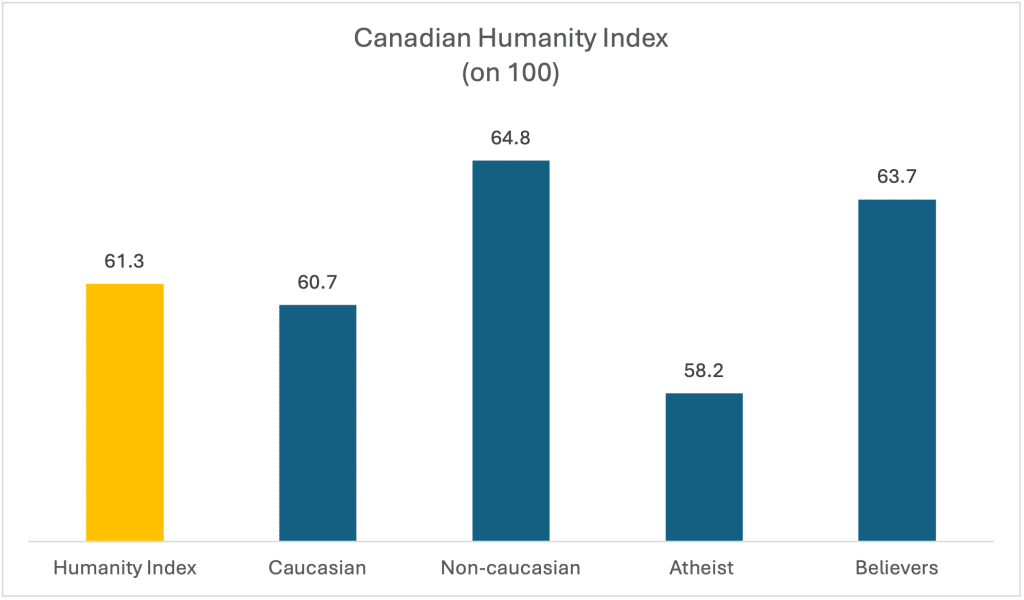Humanity Influenced by Ethnicity and Religious Beliefs
26 Nov. / 2024
And what if it were the same for happiness?
The first results of the Humanity Index reveal a striking observation: individuals of Caucasian (White) origin and those without religious beliefs (atheists) tend to evaluate Canadian society more critically.
Indeed, the score for the Canadian Humanity Index stands at 61.3 out of 100. However, there is a gap of 4.1 points between Caucasians and individuals from cultural minorities (60.7 compared to 64.8).
This gap increases to 5 points when comparing the results of believers (of all religions) and those identifying as atheists. While the Humanity Index drops below 60 for the latter (58.7), it reaches 63.7 for practicing believers.
When Society Becomes Your Religion
These disparities reflect the influence of cultural and religious values on our collective perception of humanity.
Two explanatory paths emerge, though without assuming these are the only ones:
- The Influence of Cultural and Religious Values
Believers, often from cultural minorities, value principles such as compassion and mutual aid. These values foster a more tolerant view of society and a stronger sense of community, in contrast to a more individualistic perspective. Supporting this interpretation, it is worth noting that believers rate their personal humanity higher than atheists do (79.2 vs. 75.6). - High Expectations Among Atheists
Without a structuring religious framework, atheists seem to expect more from society, which has become their “religion,” potentially explaining a more critical outlook. Their evaluation is based on a rational but also more demanding perspective.
A Link to Happiness?
The similarity is too striking to ignore: the Canadian Happiness Index shows a similar 5-point gap between believers and atheists.
This correlation raises intriguing questions. Is it linked to higher expectations among atheists, potentially leading to greater dissatisfaction? Or perhaps to a colder, more egocentric, and pragmatic view of life on earth?
These results invite us to reflect on the impact of our beliefs on our relationship with society and ourselves.




